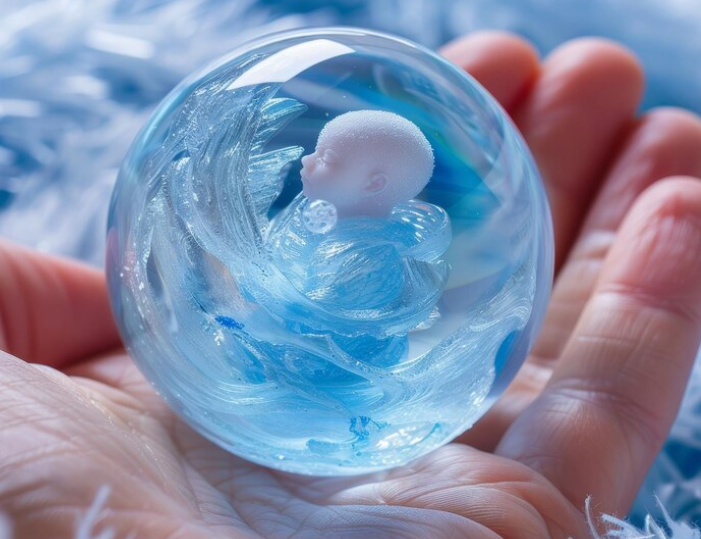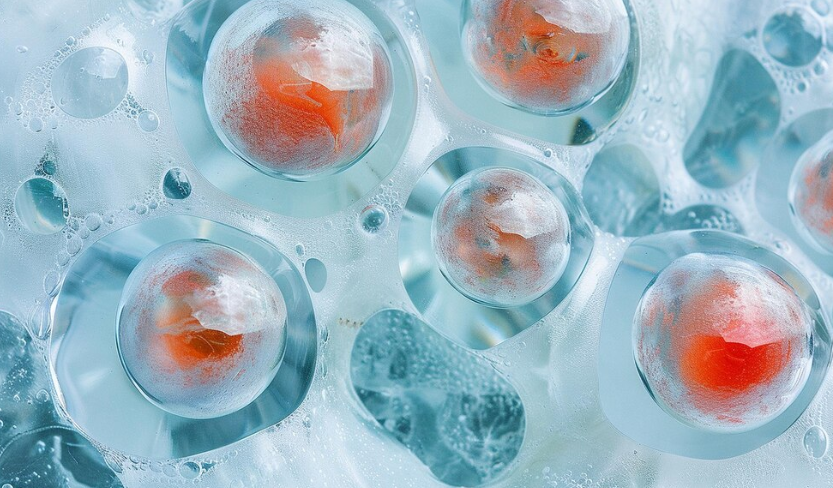One of the most significant advancements in reproductive medicine is the ability to preserve frozen genetic material — in the form of embryos, sperm, or eggs. This process is called cryopreservation, and it allows many couples to plan and undergo reproductive treatment in the future.
What is Cryopreservation?
Cryopreservation refers to the storage of biological material — embryos, eggs, or sperm — at extremely low temperatures, specifically at -196°C, using liquid nitrogen. At this temperature, all biological processes come to a halt, allowing the material to retain its quality for many years.

How is Frozen Material Stored?
- Preparation for Freezing:
The embryo or other biological material is carefully prepared — cleaned and combined with special cryoprotectants that shield the cells from damage during freezing. - Vitrification — Rapid Freezing:
At In Vitro Life, we use the most advanced technique — vitrification. This is an ultra-rapid freezing method that prevents the formation of ice crystals, which can otherwise harm the cells. - Storage:
The frozen material is stored in special cryo-containers under constant, controlled temperatures in liquid nitrogen. Each sample is labeled with a unique code to ensure precise identification and full security.
How Do We Maintain Frozen Material?
🔹 Constant Temperature Monitoring:
The level of liquid nitrogen is regularly checked and maintained using specialized systems to avoid any temperature fluctuations.
🔹 Protected Infrastructure:
The In Vitro Life laboratory operates under international standards and follows ISO protocols, ensuring the safe and long-term storage of all materials.
🔹 Regular Monitoring:
We continuously monitor both the storage conditions and systems to eliminate the risk of any unwanted incidents at every stage.
How Long Can Frozen Material Be Stored?
Research shows that embryos, sperm, or eggs can remain viable for over 10–15 years. This gives women and couples the flexibility to plan their parenthood whenever they choose.

Conclusion
The storage of frozen genetic material is a guarantee and a form of insurance for the future. At In Vitro Life, you can be confident that your material is stored safely, reliably, and in full compliance with international standards. This decision often opens the door to parenthood — even when it may not be possible naturally.
If you’d like to learn more about cryopreservation, embryo freezing, or other stages of IVF, please contact us — we’re happy to answer any questions you may have.